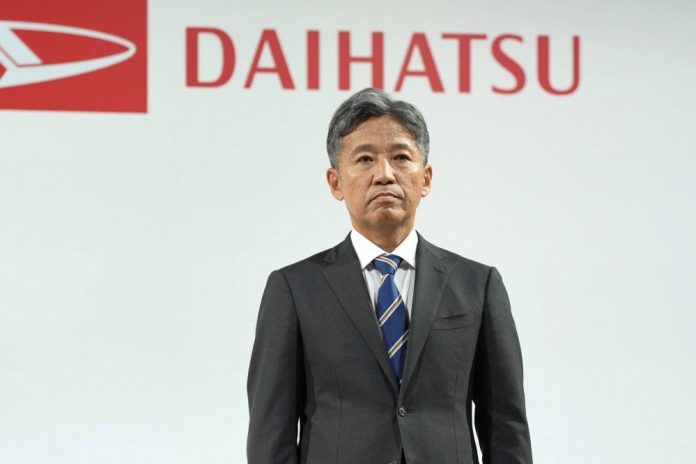On April 8, the president of Daihatsu, Masahiro Inoue, announced that Toyota would supervise model certification at its subsidiary in an effort to regain the trust of dealers, consumers, and employees.
Inoue’s predecessor resigned after a safety testing scandal, and a third-party assessment uncovered a widespread cheating scandal on safety tests that had been ongoing for several decades. In response, the government ordered Daihatsu’s production to be halted until they could complete appropriate testing. However, the company implemented a new system to prevent future incidents of this kind, and production has since partially resumed.
Daihatsu is known for its off-road vehicles and smaller “kei” cars.
Moreover, Inoue claimed that Toyota Motor will lead several sectors, including product development and procurement. He apologized for the wrongdoing and claimed to have visited suppliers, dealers, and manufacturers to promote improved inter-ranking communication. Dealers have expressed dissatisfaction with consumers’ waiting, but he stressed that safety should come before gaining market share.
Inoue stated that one reason for the deception was his attempt to meet product demand as quickly as possible. He declared that Daihatsu would put great effort into ensuring consumers feel comfortable riding in their cars and that they would make significant adjustments.
Toyota’s executive vice president, Masanori Kuwata, emphasized the need for fundamental changes in Daihatsu’s workforce. The disclosure has sparked inquiries about monitoring at Toyota-owned Daihatsu, although it has not been associated with any significant accidents.
Kuwata told reporters, “There is no one quick fix, but we hope to restore positive energy among the ranks.”




